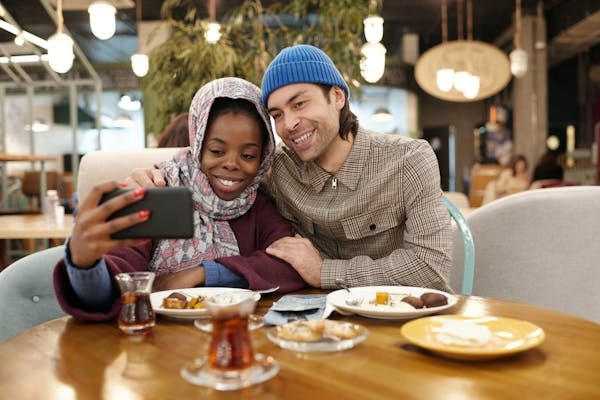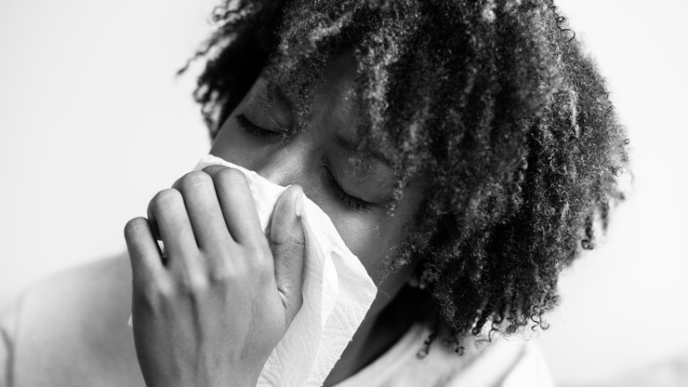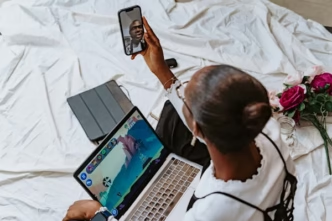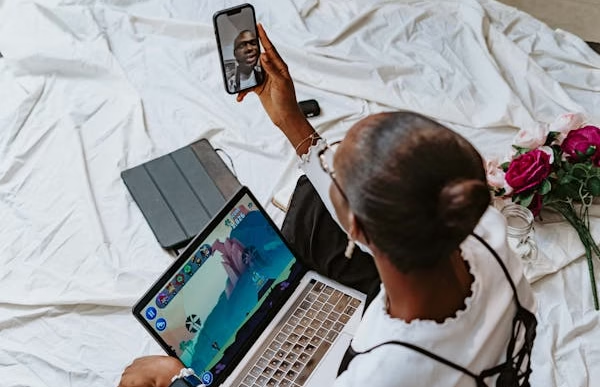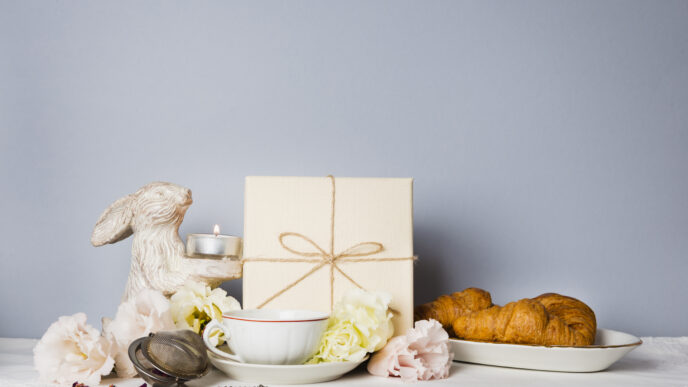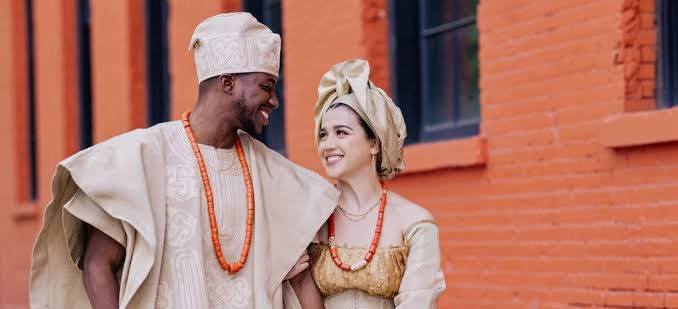Key Highlights
- Don’t just accept your differences, celebrate them like a festival.
- Curiosity is the love language here. Ask questions. Attend services. Explore each other’s beliefs with apps, books, and coffee chats.
- Make Easter not just a date on the calendar, but a reflection of your shared journey.
I get it—holidays can feel like a big puzzle when you’re blending two worlds. Maybe you’re Christian and they’re not, or maybe you’re from a different religion altogether, like Islam or a traditional African faith.
Either way, Easter might be stirring up some questions about how to make it work for both of you. In this article, we will explore some strategies for couples to navigate the celebration of Easter in an interfaith relationship.

Acknowledge and Respect Differences
Look, you’re bringing your own story to this relationship, and so is your partner. Maybe you grew up in Ghana where Easter meant big church services with drumming and dancing, or maybe in Kenya it was quieter, with family meals of ugali and nyama choma.
Or perhaps Easter wasn’t even a thing for you—maybe your family focused on Ramadan or traditional rituals instead. Your partner’s got their own background too, whether it’s American-style Easter with egg hunts or something totally different.
The first step is to sit down and really see those differences. Don’t just nod and move on—dig in. Share what your holidays were like back home. Tell them about the smells of your mom’s cooking or the sound of prayers in your language.
Then listen to their story. If they’re Christian, maybe Easter’s about church and family traditions like ham and hot cross buns. Respecting each other isn’t about agreeing—it’s about valuing what makes you you. That’s the foundation for everything else.
Educate Each Other
You know how we say “knowledge is power”? Well, it’s true here too. Take some time to figure out what Easter means to your partner. If they’re Christian, ask them: Is it the spiritual stuff—like the resurrection—or the fun stuff, like dyeing eggs?
And don’t stop there—share your own faith or culture with them. If you’re Muslim, maybe talk about Eid and how it’s a time of joy after fasting. If you follow a traditional African religion, explain your rituals about renewal or community.
This can be done through open and honest conversations, reading books or articles, and attending religious services together. By learning about each other’s beliefs, couples can gain a deeper appreciation for the holiday and its importance in their partner’s life.
Create New Traditions
In an interfaith relationship, couples may choose to create new traditions that honor both partners’ beliefs. For example, a couple might attend a Christian Easter service together and then participate in a Seder meal to honor the Jewish Passover. Here’s some inspiration:
- Food fusion: If they’re doing an Easter roast, add a side from home—maybe jollof rice or plantains. Imagine their family’s reaction to that combo!
- Music vibes: Play some African tunes during the Easter meal—think Burna Boy or a gospel choir from your country. It sets a mood that’s both of you.
- Giving back: Easter’s about new life, right? Start a tradition of volunteering together—maybe at a food bank or a shelter helping African immigrants.
- Story time: If your culture’s big on storytelling (and most African ones are), share a folktale about hope or rebirth alongside the Easter story. Got kids? They’ll love it.
This isn’t about replacing anything—it’s about building something fresh that screams “us.”
Celebrate Together
Celebrating Easter as a couple can be a meaningful way to find common ground and strengthen the relationship. This can involve attending religious services together, participating in Easter-related activities, or simply spending time together as a family. Plan something else:
- Call home: In 2025, video calls are smoother than ever. Bring your family in Africa into the day—share a prayer or just catch up while you’re eating.
- Host a mash-up meal: Invite friends from both your circles and make it a potluck. Their deviled eggs meet your samosas—yum.
- Eggs with flair: Decorate Easter eggs with African designs—think kente patterns or Adinkra symbols. It’s a small touch that means a lot.
By sharing in the joy and significance of the holiday, couples can create lasting memories and deepen their connection.
Communicate Openly and Honestly
Holidays can get messy if you don’t talk first. So, grab some tea (or whatever you’re sipping in 2025) and hash it out before Easter hits. What do you want? What’s non-negotiable?
Maybe church is a must for them, but you’d rather sleep in. Or maybe you’re missing how your family did things back home and feel torn about American Easter.
Be straight-up. If you’re homesick for those big Easter feasts in Uganda or the quiet prayers in Senegal, say it. If they’re set on an egg hunt, hear them out. Then figure out what works. It’s not about winning—it’s about making space for both of you.
Be Flexible and Willing to Compromise
In an interfaith relationship, flexibility and compromise are essential for finding common ground during Easter. Couples should be willing to adapt their plans and traditions to accommodate each other’s needs and beliefs.
Maybe this year, you do Easter their way—church, brunch, the whole deal. Next year, you bring in more of your flavor, like a virtual call with your cousins in Lagos or a dish that reminds you of home. Or split the day: morning at their service, afternoon with your music and food.
If you’re feeling the pull of Africa, weave it in. Wear that sharp kente shirt to their family gathering, or cook something that takes you back—like chin chin or mandazi. Flexibility keeps the peace and makes Easter a team effort.

Seek Support from Others
You don’t have to do this alone. Other folks have been where you are. Try these:
- Find your people: Look for interfaith couples in your city or online. In 2025, there are probably virtual groups on whatever app’s hot now—join one.
- Hit up the community: Connect with Africans near you—churches, cultural clubs, even a WhatsApp group. They get the homesickness and the interfaith juggle.
- Ask the pros: Chat with a pastor, imam, or elder who’s cool with mixed-faith couples. They’ve got wisdom to share.
Having a crew cheering you on makes it less lonely—and way more doable.
Conclusion: Celebrating Easter in an Interfaith Relationship
Celebrating Easter in an interfaith relationship can be a rewarding and enriching experience. By acknowledging and respecting differences, educating each other, creating new traditions, and creating meaningful holiday celebrations that honor both partners’ beliefs and traditions.
As the world becomes more diverse and interconnected, interfaith relationships offer an opportunity to build bridges of understanding and respect, fostering a more compassionate and inclusive society.
Easter Chic: Coordinating Outfits with Style for Couples
This guide explores the world of Easter fashion for couples and offers tips and tricks to achieve a stylishly coordinated look that reflects your unique personalities.


